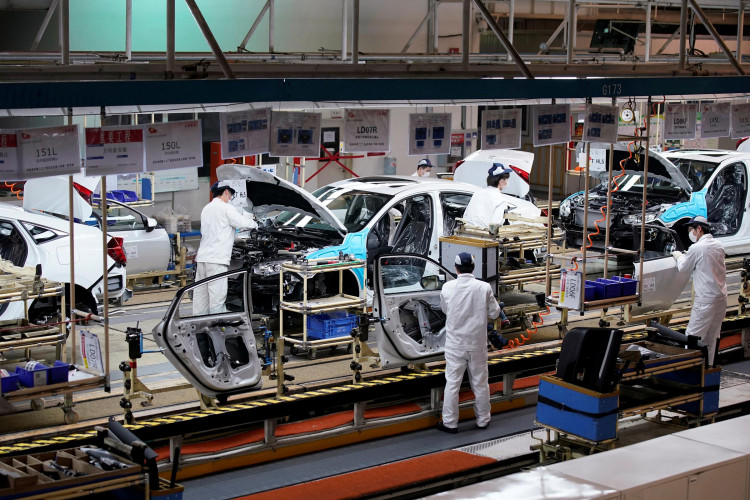Honda Motor Co. has announced plans to close a vehicle assembly plant in China and halt production at another. The decision comes as the Japanese automaker faces intensifying competition from domestic Chinese brands in the world's largest auto market.
On Thursday, a Honda spokesperson confirmed that the company will close a factory operated through its joint venture (JV) with Guangzhou Automobile Group in October. This plant, which has been producing the Accord sedan since it opened nearly two decades ago, has an annual production capacity of 50,000 vehicles. Additionally, Honda will suspend operations at another factory managed through a separate JV with Dongfeng Motor Corporation starting in November. This site has a significantly higher annual production capacity of 240,000 vehicles.
The closure and suspension of these plants will reduce Honda's annual production capacity in China from 1.49 million to 1.2 million vehicles. However, the automaker plans to offset this reduction by initiating production at two new EV plants currently under construction in collaboration with GAC and Dongfeng. These new facilities are expected to commence operations later this year and will collectively boost Honda's annual production capacity back up to 1.44 million vehicles.
Honda's decision to restructure its operations in China reflects broader industry trends and the company's strategic pivot towards electric vehicles. Chinese automakers have rapidly gained market share by offering competitively priced, technologically advanced vehicles that appeal to domestic consumers. This shift has put significant pressure on traditional internal combustion engine (ICE) vehicle manufacturers, including Honda.
"Honda faces tough conditions in the Chinese auto market," the company spokesperson acknowledged, noting that optimizing production capacity is crucial in navigating these challenges. The new EV plants, each with a capacity of 120,000 units annually, are part of Honda's broader effort to increase its presence in the growing EV market.
In addition to adjusting its production strategy, Honda is also exploring collaborative efforts to strengthen its EV component and automotive software platforms. In March, Honda and Nissan Motor Co. announced that they were considering a strategic partnership to produce EV components and develop artificial intelligence for automotive software. This potential alliance could help both companies enhance their competitiveness in the fast-evolving auto industry.
Honda's struggles in China are underscored by a 10% decline in sales last year, with total deliveries dropping to 1,234,181 units. The company's two main JVs, GAC Honda and Dongfeng Honda, each contributed roughly half of these sales, delivering 620,469 and 613,712 vehicles, respectively. Despite the overall market growth driven by new energy vehicles (NEVs), Honda's reliance on ICE vehicles has made it vulnerable to shifting consumer preferences and competitive pressures.
The automaker's global operations are also undergoing significant changes. Earlier this month, Honda announced plans to consolidate vehicle production at one of its two assembly plants in Thailand by 2025, citing overcapacity as the primary reason. This move is part of a broader review aimed at streamlining operations and aligning production with market demands.






